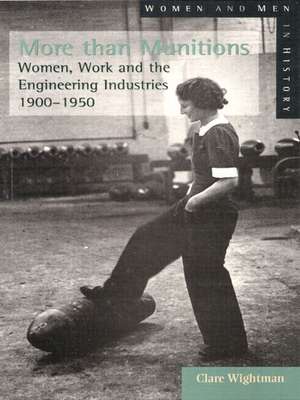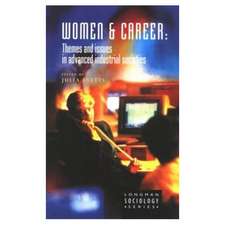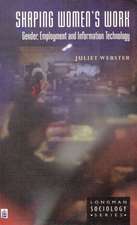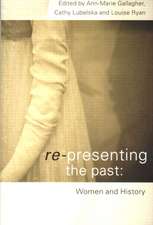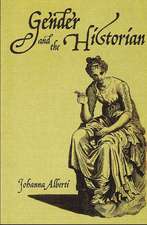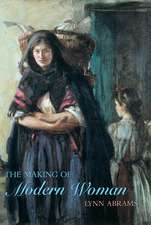More than Munitions: Women, Work and the Engineering Industries, 1900-1950: Women And Men In History
Autor Clare Wightmanen Limba Engleză Paperback – 6 apr 1999
| Toate formatele și edițiile | Preț | Express |
|---|---|---|
| Paperback (1) | 198.19 lei 43-57 zile | |
| Taylor & Francis – 6 apr 1999 | 198.19 lei 43-57 zile | |
| Hardback (1) | 389.38 lei 43-57 zile | |
| Taylor & Francis – 26 apr 2017 | 389.38 lei 43-57 zile |
Din seria Women And Men In History
- 8%
 Preț: 509.76 lei
Preț: 509.76 lei -
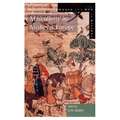 Preț: 386.77 lei
Preț: 386.77 lei - 8%
 Preț: 383.57 lei
Preț: 383.57 lei -
 Preț: 447.51 lei
Preț: 447.51 lei - 23%
 Preț: 409.19 lei
Preț: 409.19 lei - 12%
 Preț: 325.34 lei
Preț: 325.34 lei - 23%
 Preț: 427.84 lei
Preț: 427.84 lei -
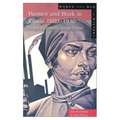 Preț: 309.69 lei
Preț: 309.69 lei -
 Preț: 469.34 lei
Preț: 469.34 lei - 15%
 Preț: 421.44 lei
Preț: 421.44 lei -
 Preț: 479.82 lei
Preț: 479.82 lei -
 Preț: 449.41 lei
Preț: 449.41 lei -
 Preț: 445.38 lei
Preț: 445.38 lei -
 Preț: 469.34 lei
Preț: 469.34 lei -
 Preț: 469.34 lei
Preț: 469.34 lei - 15%
 Preț: 540.06 lei
Preț: 540.06 lei -
 Preț: 469.34 lei
Preț: 469.34 lei -
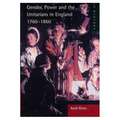 Preț: 469.64 lei
Preț: 469.64 lei - 15%
 Preț: 427.16 lei
Preț: 427.16 lei -
 Preț: 465.49 lei
Preț: 465.49 lei - 15%
 Preț: 568.28 lei
Preț: 568.28 lei -
 Preț: 469.34 lei
Preț: 469.34 lei - 15%
 Preț: 460.20 lei
Preț: 460.20 lei
Preț: 198.19 lei
Nou
Puncte Express: 297
Preț estimativ în valută:
37.93€ • 39.09$ • 32.03£
37.93€ • 39.09$ • 32.03£
Carte tipărită la comandă
Livrare economică 03-17 martie
Preluare comenzi: 021 569.72.76
Specificații
ISBN-13: 9780582414358
ISBN-10: 0582414350
Pagini: 216
Dimensiuni: 138 x 216 x 12 mm
Greutate: 0.45 kg
Ediția:New.
Editura: Taylor & Francis
Colecția Routledge
Seria Women And Men In History
Locul publicării:Oxford, United Kingdom
ISBN-10: 0582414350
Pagini: 216
Dimensiuni: 138 x 216 x 12 mm
Greutate: 0.45 kg
Ediția:New.
Editura: Taylor & Francis
Colecția Routledge
Seria Women And Men In History
Locul publicării:Oxford, United Kingdom
Public țintă
UndergraduateCuprins
Women's employment, 1900-1950; the engineering industry, 1900-1950; World War I - munitions work and its impact, 1914-1919; women's employment between the wars; disputes - the significance of collective bargaining, 1919-1939; a specialized line - women and trade unions, 1919-1939; World War II - dilution, an arrangement for men?; would women stay? the effects of war work; post-war divisions of labour.
Descriere
Clare Wightman explores the key issue of gender in explaining the experience of men and women at work. She uses women's employment in the engineering industries between 1900 and 1950 to confront many of the contentious debates in women's history. She shows that the two World Wars did not produce radical changes for women at work. Throughout the book the author questions the leading role given to gender ideology in constructing the attitudes of employers, and suggests that it was only one factor among many which shaped women's experiences in the workplace. This is a major study with wide and challenging implications for the subject.
